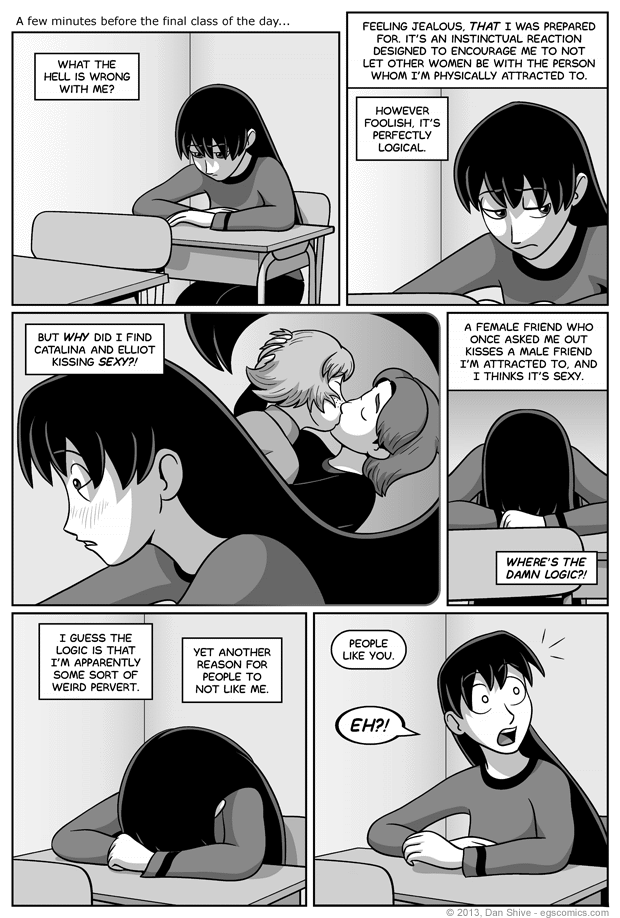
My thanks go to the Dan Shive for prompting this post... I hope he reads it.
Writers, and everyone else for that matter, write a lot of bunk about instinct. Much of it can probably be avoided except for where it is strictly thematic, but all that is beside the point. Today's issue is the word instinctual.
Now this word is not the modern invention it appears to be to people who grew up with instinctive and only encountered instinctual from time to time. Although it appears to date from the mid nineteenth century*, whereas instinctive is from the early seventeenth, there should be, and often is, a distinction in the meaning between these two words.
Both words are about instinct — whatever you think that might be. But they have different suffixes for a reason.
The -ive suffix typically means: arising from, pertaining to, tending to.
The -al (often -ual) suffix typically means: of, like, relating to.
In modern English there is often some overlap between these but consider the following imaginary University Facluties:
Department of Instinctual Studies — Department of Instinctive Studies
I hope some readers will immediately feel the difference in meaning, I'm sure that some will see it straight away. For those that don't:
The Department of Instinctual Studies studies and teaches about instinct. The Department of Instinctive Studies studies or teaches through or using instinct. We don't know what it teaches.
To put it another way, instinctual studies is the "of" meaning of the -al suffix: "the study of instinct". Instinctive studies is the "arising from" or "tending to" meaning of the -ive suffix, meaning study using instinct.
What I find especially curious is that there are very few words ending in -ual compared with those ending in -ive. So few, indeed, that a list of those that have both can be very short:
| actual | active | (the meanings are very distinct) |
| auditual | auditive | (the latter is vastly more common but both are just synonyms for auditory) |
| effectual | effective | (the former means "having an effect" and is more often used negated. The latter means performing its expected function) |
| perceptual | perceptive | the difference is very similar to instinctual/instinctive: perceptual is "all about perception" while perceptive is "possessing qualities or capacities of perception" |
I think this shows that there is a valid, definite and valuable distinction between the meanings of instinctive and instinctual and writers should stop using the latter as a "smarter sounding alternative" to instinctive. In fiction, usage of instinctual ought to be extremely rare compared with instinctive.
However!
I can't work out whether there should or could be a clear denotative difference between instinctually and instinctively. The former seems only to be used by people who use instinctual when they mean instinctive and I suspect that this is why four out of five of the dictionaries I regularly go to have no listing for instinctually at all.
___
* Some sources put the word later, in the early twentieth. It appears very often in translations of German psychology textbooks and hardly anywhere else until the 1960s, and it is only from the 1980s that it really starts to become common.